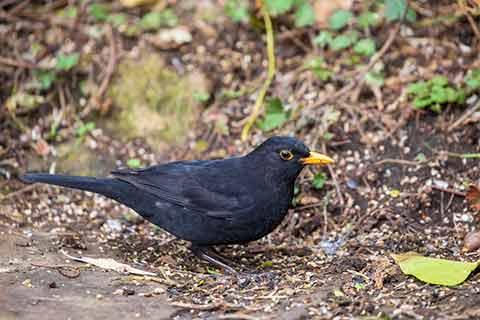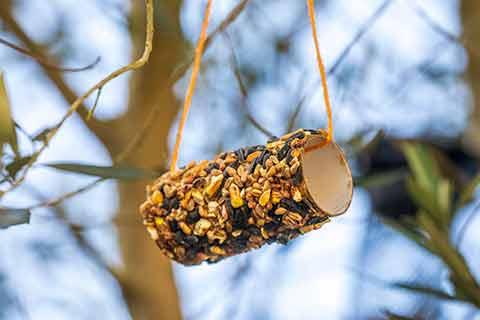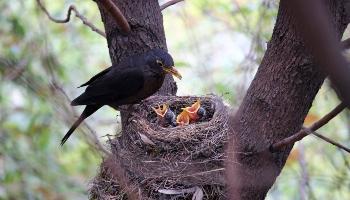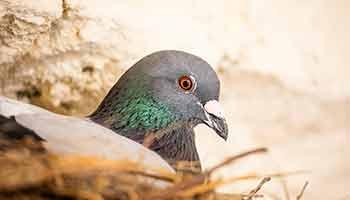Feeding Garden Birds | Wildlife | RSPCA - RSPCA
Feeding garden birds
Helping garden birds can be as rewarding for you as it is for them. By using bird tables and hanging feeders, you can bring wild birds right up to your window.

Seasonal feeding of birds
Help your garden birds by feeding them all year round and not just during winter.
- Spring - help birds feed their young
- Summer - dry ground makes it harder to find food
- Autumn - birds are moulting and preparing their bodies for winter
- Winter - helps birds survive the colder weather ready for nesting in the springtime
What garden birds eat
Birds love to eat:
- Fruit - apples, pears and soft fruits.
- Suitable seeds and grains - like nyjer, millet, oats, and sunflower seeds.
- Peanuts - must be unsalted, fresh and that they don't contain aflatoxin (a poison caused by fungus mould). Young chicks might choke on whole peanuts, so always put them in feeders with a smaller mesh.
- Food scraps - cooked pasta, rice and boiled potatoes or cheese and uncooked and unsalted bacon rind.
- Raisins and sultanas.
- Net-free fat or suet balls - these attract a wide range of species and provide a great boost of calories.
- Insects such as mealworms or waxworms.
Important: If you have dogs, be careful with grapes, sultanas, raisins and some artificial sweeteners, as they're toxic to dogs.

Don't forget fresh water
Fresh, clean water is essential for birds, so keep water bowls full of clean water and make sure you place bowls and feeders far away from bushes and other areas where predators might hide.
Many garden birds die each year through the transmission of diseases, so it's important to clean all water containers daily and feeders weekly, drying them before refilling.
Rotating feeding and drinking areas will help reduce the transmission of disease. Follow our advice if you find a sick or injured bird.
Keep wildlife safe from pets
When feeding wild animals in your garden, help keep them safe from cats.
- Feeders up high - place feeders up high, well above cat height and away from cat perches such as branches and walls.
- Bird tables out in the open - ensure bird tables are in open areas, away from any cover that cats could use for stalking prey. If mounted on top of a pole, use material such as metal that cats cannot climb.
- Keep food off the ground - this can leave small mammals and birds vulnerable to cats.
- Steep roof bird boxes - bird boxes with features like steep roofs stop cats from sitting on top of them and waiting.
- Houses for small mammals - logs, stone and compost piles provide refuge or purpose-built refuges like toad or hedgehog houses


